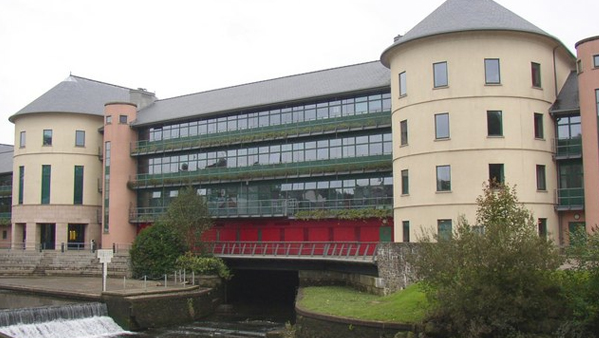Politics
Cameron’s hamstrung Exchequer

Pledges cost money: David Cameron’s hamstrung Exchequer
THE NATIONAL tabloids are often full of foaming at the mouth headlines about ‘scroungers’, stories about ‘dole fiddlers’, and tales expressing horror that some people pretend to be ill to get disability benefits.
That is nothing new and it is conspicuous that there is a spike in such stories (particularly involving those from outside the UK) when governments of whatever complexion have announced ‘welfare reform’ (cuts) ‘designed to deliver to those most in need’ (not those in most in need).
WHERE THE MONEY GOES: PENSIONS
Welfare spending makes up around 35% of the UK Government’s spending and totals over £260b per year. However, ‘welfare’ is a broad term and only a fraction of welfare benefits spending is on unemployment benefits.
The largest amount paid out in welfare benefits is for pensions and the Office for National Statistics’ last available figures show that £108b of the £258b welfare spend in 2014/15 went on pensions.
In fact, total pension spending has increased by 25% since the financial year 2010/11. This isn’t surprising as life expectancy has been steadily increasing, so state pensions are being claimed for longer. The remaining life expectancy for someone aged 65, in 2016, is 21 years for a man and 24 for a woman.
What that means is that the idea that people have ‘paid in what they get out’ is increasingly untrue. Some of those claiming pensions will have contributed comparatively little to their state pensions, whereas actuarial calculations on future pension need carried out when older pensioners were working would have been predicated on them dying within a few years of retirement. The fact that we are all living longer means that the proportion spent on pensions is likely to continue to rise just at the point when the working age population which funds the spending is in decline.
WHERE THE MONEY GOES: CARE AND DISABILITY
£29 b is spent on personal social services. About £41 b goes on benefits for people who are ill or disabled, while £10 b goes on elderly care payments. Disabled people are more likely to live in deprived areas and work in routine occupations. In the 2011 Census, 18% of people (10 million) reported some form of disability.
As for elderly care, there were 9.2 million people aged 65+ in 2011, making up 16% of our population. The care home population has actually stabilised over the last decade at around 300,000 people, but there has been an increase of 600,000 people (likely family members) providing unpaid care between 2001 and 2011. In total, 5.8 million (10%) provided unpaid care in England and Wales in 2011, and the majority were of working age.
W HERE THE MONEY GOES: POVERTY AND THE UNEMPLOYED
£44 b goes on family benefits, income support and tax credits. This includes benefits such as child benefit and support for people on low income. Around £3.5 b goes to the unemployed.
There were around 3 million people in in-work poverty in 2013. This meant their household income (adjusted for household size and composition) was below the poverty threshold and were in employment themselves. The 10% of households with the lowest disposable income spent an average of £196 a week in 2013. Of this, half (£98) was spent on food and non-alcoholic drinks, transport, housing (including net rent), and household fuel and power.
As for out of work people claiming Jobseeker’s Allowance and Universal Credit, there were 760,200 people claiming these benefits in January 2016. This number has decreased by 11.2% compared with a year earlier
WHAT ABOUT FRAUD?
The notion, often pushed by the tabloids, is that there is a massive amount of benefit fraud. A poll carried out by the TUC in 2012 revealed that British people believed that 27% of benefits were claimed fraudulently.
To describe that as a ‘wild overstatement’ does not do how wrong it is justice. It seems to be one of those figures arrived at on the basis that ‘everybody knows’, rather than being remotely founded in reality.
The actual level of all fraud in the UK’s welfare benefits system was 0.8% in 2014/15.
While that is the amount of detected fraud, to suggest that it is completely out of line with actuality is to ignore the fact that the UK government employs 12 times as many benefits fraud investigators than it has tax fraud investigators.
The UK loses six times more through tax evasion and aggressive tax avoidance than the total value of fraudulent welfare benefit claims. Moreover, the UK fails to collect £34b in tax each year. And that is providing you accept the UK government’s figures, which are disputed by some economists as a wild underestimate.
While benefits fraud is an issue, there is an argument that the amount of time spent on it and the amount of publicity it receives is out of all proportion to the actual value of the fraud involved.
University of Warwick political scientist Adam Taylor said: “
This isn’t to say that benefit fraud is OK or that HMRC isn’t doing anything about tax evasion. But it is wrong that the government feels it can openly threaten the poor while merely cajoling the rich. And it is sad that the tax-burdened middle class reserve their outrage for the single mother working in the cafe while lionising the rich, famous and powerful who are getting away with it, tax free.”
WHO PAYS?
Successive governments have been aware of the crisis facing benefit payments for over two decades and yet none of them has sought to do anything more than fiddle at the margins and target the most vulnerable and weakest members of society: the Cameron Government spent an enormous amount of political capital to no good end making an economically pointless adjustment to housing benefit with the hated bedroom tax. The projected savings from that policy were tiny.
In addition, the amount of direct tax paid by the working population is contracting along with the numbers of those in work and the changing profile of work economic activity.
In the past, when the welfare model was fixed, there was generally one full time bread winner per working class family in a job which lasted an entire working life. Stable incomes represented a stable and predictable tax yield. However, the change from a high labour manufacturing economy to a service-based one with lower labour requirements, altered the whole dynamic of working class life. Multiple part time jobs may reduce the number on the unemployed role, but lower income jobs pay less into the UK’s tax base.
So, the question that all governments face is how to provide people with the welfare benefits they need without upsetting voters who have to pay for them.
NO EASY ANSWER
The issue is particularly acute due to David Cameron’s 2015 promise not to raise National Insurance, Income Tax, or VAT. Where else, the question might fairly be asked, would the money come from? Especially as there is a guaranteed 2.5% increase per annum in the state pension.
Oh – and older voters and pensioners vote in far higher numbers than the young. On the basis that turkeys seldom vote for Christmas, you can guess why politicians are wary of doing anything to affect that demographic.
One thing is certain, fiddling at the margins is not enough. But whether politicians have the will to make the sort of changes needed to the UK’s tax and welfare system, is one of those questions to which there is no glib answer.
Which do you prefer, after all, higher taxes or cuts targeted at those least able to defend themselves?
Politics
Last-minute council tax lowering to come under spotlight

A CLAIM at last-minute use of reserves was used to lower Pembrokeshire’s council tax increase to avoid senior councillors being defeated during the setting of the council’s annual budget is to come under the spotlight later week.
Pembrokeshire County Council was facing a 16.3 per cent council tax increase when setting the council budget for 2024-’25 in March; that figure dropping to 12.5 per cent after an 11th-hour alternative budget proposal by deputy leader Cllr Paul Miller was narrowly backed.
That drop in the council tax rise was made by using additional reserves of £1.5m, as well as £1m target for council efficiency savings.
Members of the council’s Governance & Audit Committee are, at its April 18 meeting, to consider concerns raised by Councillor Huw Murphy about the budget process following that meeting, along with assurances provided responding to his concerns.
A report for members states: “On March 25 Councillor Murphy raised concerns to the Chair of the Governance & Audit Committee regarding the council’s budget setting process for the 2024-25 budget, and associated issues, which council considered and set at their meeting on March 7.
“The Chair of the Governance & Audit Committee asked the Chief Executive to review those concerns and report to the Committee to provide assurance that there were no procedural failures in the budget setting process.”
Cllr Murphy has written: “An email was sent out on behalf of the Director of Resources on Feb 1 making it clear that no alternative/amendment budget could be presented after Feb 14. However, on March 7 at full council this is exactly what occurred.”
He has raised concerns about why an alternative budget proposal was allowed after February 14, and has asked whether there was sufficient time for the accepted alternative budget to be analysed.
He says his political group advanced a potential budget alternative to use £750,000 in reserve, which was refused, with a maximum of £375,000 offered, along with a later proposal refused, claiming Cllr Miller’s £1.5m proposal may have been submitted just 18 hours before the budget D-day.
In his lengthy document raising his concerns he states: “I am also aware that some ruling group councillors arrived at County Hall very early on March 7 to possibly refine the amendment that was then put before council.
“I form my opinion on becoming aware of a councillor having been contacted repeatedly in an effort to ‘persuade’ him in the weeks before full council to support a council tax of 16.31 per cent who was contacted on two to three occasions on the morning of March 6 and bravely refused to relent and made it clear he could not support a CT of higher than around 12 per cent.
“This councillor is in the ruling group and, in my opinion, his refusal and the refusal of others on the ruling group to buckle to a CT rise of 16.31 per cent caused panic in a Cabinet now facing imminent defeat at full council the next day and as a result they drafted a last-minute alternative/amended budget to appease ruling group councillors who had rebelled.”
The report for members concludes: “There is no evidence of procedural failings in the budget setting process and the legal budget setting procedures have been adhered to. There was sufficient time for officers to properly assess the alternative budget proposed and for the S151 Officer to make a properly informed statement at Council on March 7.”
It is recommended members consider the concerns raised by Cllr Murphy and notes the assurance provided in response to those concerns, and the committee notes that there were no procedural failures in the council’s budget setting process.
Business
Bluestone National Park Resort payments expected to end

A CALL to end a legal agreement for financial contributions associated with the creation of Pembrokeshire’s Bluestone National Park Resort is expected to be backed next week.
In a submitted application to Pembrokeshire Coast National Park on behalf of Bluestone Resorts Ltd, legal firm Red Kite Ltd asks for a cessation of a 2004 Section 106 legal agreement used to pay towards various projects including enhancements to footpaths and bridges.
In a supporting statement says most agreements of this type are time limited, and “today such an arrangement without a timeframe would likely not be considered acceptable by either side.
“However, no such end date was placed on this one. More recently, it was agreed between the parties that the payments would cease in 2025, also known as a ‘statement of common ground’. This is why a formal agreement now has to be made by each of the parties involved.”
The statement says that, since the agreement was made, Bluestone has paid nearly £280,000 through the agreement, adding: “As part of the Statement of Common Ground, it was agreed by Pembrokeshire County Council, Pembrokeshire Coast National Park Authority and Bluestone that a final fee of £113,000 would be paid, spread over 2023, 2024, and 2025 in annual payments of £38,000.”
A report by national park officers, ahead of the Pembrokeshire Coast National Park Development Management Committee meeting of April 24, where it is recommended for approval, says: “The applicant has applied to discharge the Section 106 Legal agreement but the supporting text notes that they applicant is agreeable to making two final payments.
“Having considered the information submitted, officers consider that provided the two final payments are received the legal agreement has served its purpose and can be discharged.
“In order to ensure the two final payments are made, a modification to the Section 106 legal agreement is supported. This decision is supported by Pembrokeshire County Council, who have received a concurrent application which is also recommended by officers for modification.”
The report says the £280,000 figure presented by Bluestone actually amounted to £318,703.87, taking into account a 2023 payment of £38,891.73, with Pembrokeshire County Council’s S106 monitoring officer confirming the contributions have been spent on a range of public rights of way improvements, primarily in nearby Canaston Woods.
Recommending approval, the report adds: “The authority is satisfied that subject to two further payments of £38,000 to be made in August 2024 and August 2025, the obligation no longer serves a planning purpose and can be discharged and as such the obligation should be modified accordingly.”
The 500-acre Bluestone resort near Narberth has, since its opening, contributed to “more than £100 million to local suppliers, £7 million annually into the local supply chain, £13 million annually into the Pembrokeshire economy through its payroll, and more than £1.5 million spent annually on marketing Bluestone and Pembrokeshire.”
Politics
Slurry lagoon near Boncath conditionally approved

AN APPLICATION for a slurry lagoon near the north Pembrokeshire village of Boncath has been conditionally approved by county planners.
A H & V F Picton sought permission for a slurry lagoon and associated works at 230-acre Ty Mawr Farm, a mixed farm of a herd of dairy cattle plus followers, beef cattle, and sheep, some 150 metres north of Boncath.
A supporting statement by agent Cynllunio RW Planning Ltd said: “The proposed development seeks to increase the farms slurry storage capacity to above the five-month storage required by NVZ regulations. The existing slurry store and slurry handling facilities are not adequate to comply with the new regulations.”
It stressed the applicant does not intend to increase livestock numbers on farm as a result of the 48 by 30 metre development.
It added: “The lagoon proposed will have very low banks and as such the proposal will not be visible from the surrounding area. The proposed will be screened by the adjacent building and hedgerow and will have no adverse impact on the landscape in line with relevant policies of the Pembrokeshire LDP.”
One letter of objection to the scheme was received by planners, raising concerns including potential noise, odour, and the impact on property value for their property and properties within the wider village of Boncath.
An officer report said: “It is considered that the location of the development, within a rural setting, is appropriate and sustainable.
“The development allows the operation of the existing farm business and results in positive economic, social benefits and improved welfare facilities. It is considered that sufficient need is evidenced and that the lagoon is justified.”
The application was conditionally approved.
-

 Business1 day ago
Business1 day agoBluestone National Park Resort payments expected to end
-

 Community3 days ago
Community3 days agoThe Harbourmaster: Special rail excursion draws crowds to Milford Haven
-

 News2 days ago
News2 days agoDragon LNG ‘monitoring’ scrap car blaze in Waterston
-

 Crime7 days ago
Crime7 days agoDock duo sentenced for Aldi meat theft
-

 News3 days ago
News3 days agoSearch for Luke, 19, reported missing in the Pembroke Dock area, continuing
-

 Crime7 days ago
Crime7 days agoMechanic lands four-figure fine after head-butting officer in Quins
-

 News4 days ago
News4 days agoMajor search in the area of The Cleddau Bridge and Hobbs Point
-

 Crime19 hours ago
Crime19 hours agoEstate agents admit health and safety failings following fatal market incident
























